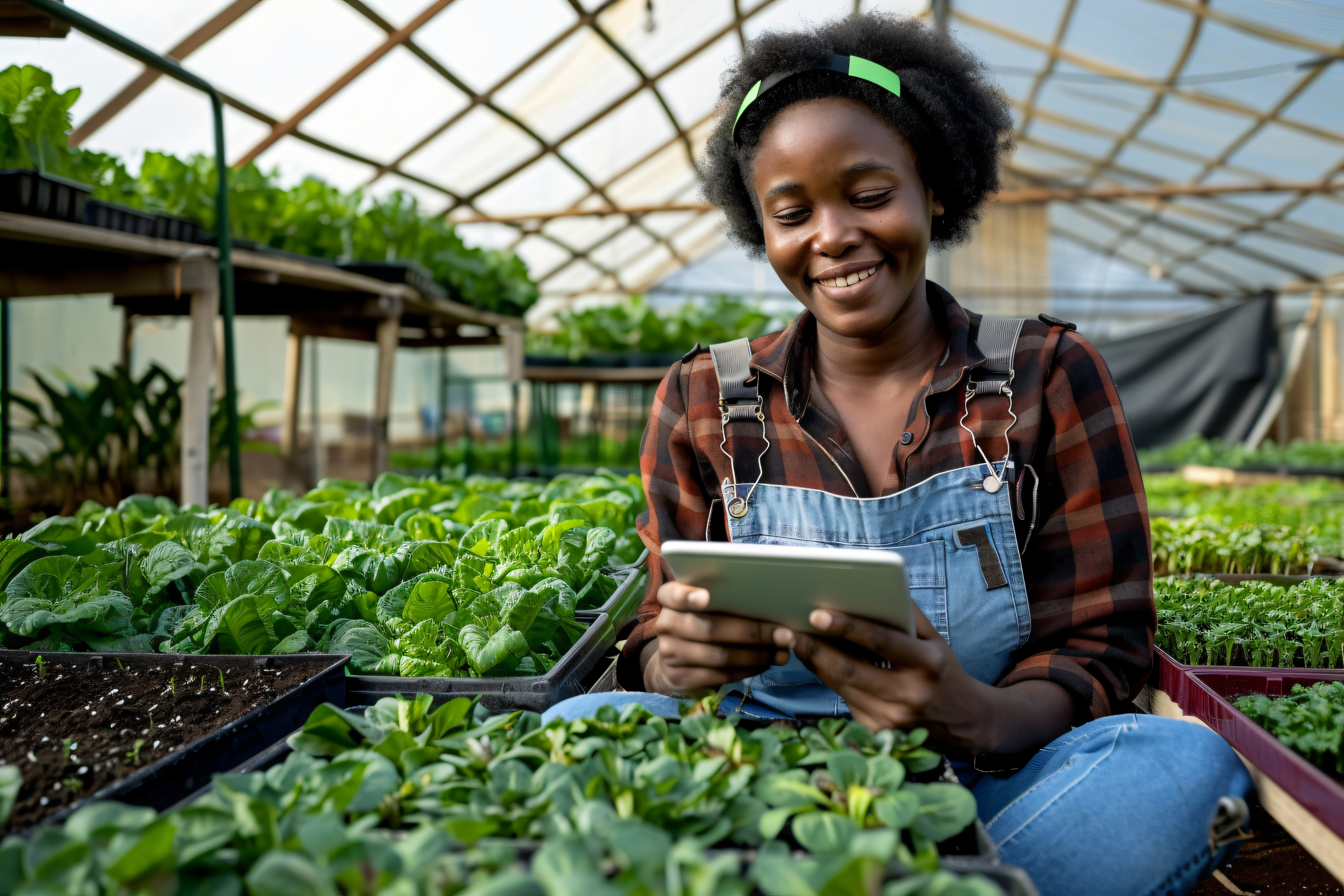South Africa’s Agritech Revolution: A Rising Global Hub of Innovation

Strong 8k brings an ultra-HD IPTV experience to your living room and your pocket.
South Africa is undergoing a transformative shift in agriculture. The convergence of advanced technologies, entrepreneurial drive, and the urgent need for sustainable farming solutions is positioning the country as a rising agritech hub, not just for Africa, but globally.
From smart irrigation systems and drone-powered crop monitoring to AI-driven analytics and blockchain-based traceability, agritech in South Africa is redefining traditional farming practices. What makes this movement particularly impactful is its focus on addressing deep-rooted challenges like food insecurity, climate change, and economic inequality, all while catalyzing innovation-led growth.
A Historical Agricultural Backbone Meets Technological Evolution
Agriculture has always played a central role in South Africa’s economy and cultural identity. The country’s diverse climate zones—from the vineyards of the Western Cape to the maize fields of the Free State—make it an ideal testing ground for a wide array of agritech innovations.
However, the sector has also faced longstanding issues: uneven access to markets, poor infrastructure in rural regions, volatile weather patterns, and legacy land ownership dynamics. These challenges have created a sense of urgency for scalable, tech-driven solutions. And that’s exactly where agritech is making its mark.
Over the past decade, a new generation of startups, academic institutions, NGOs, and tech firms has emerged, creating an ecosystem ripe for innovation. South Africa’s agritech sector is no longer just a promise; it’s now a proving ground for global breakthroughs.
Key Enablers Fueling the Agritech Boom
1. Strong Startup Ecosystem
Cape Town, Johannesburg, and Stellenbosch have become hotbeds for tech entrepreneurship. The growth of incubators and accelerators such as GreenCape, Savannah Fund, and Startupbootcamp Afritech has nurtured early-stage agritech ventures. These platforms don’t just provide funding—they offer mentorship, access to international markets, and partnerships with research institutions.
For example, Aerobotics, a Cape Town-based startup, uses AI and drone technology to help farmers detect crop stress and predict yields. Today, they serve clients across four continents and are often cited as one of the most successful agritech startups to emerge from Africa.
2. Government Support and Policy Frameworks
South Africa’s government has recognized the transformative potential of agritech and has included it as part of its broader Fourth Industrial Revolution (4IR) strategy. The Department of Science and Innovation (DSI) and the Agricultural Research Council (ARC) are actively funding and supporting initiatives focused on precision agriculture, bioinformatics, and climate-resilient crops.
Additionally, public-private partnerships have accelerated adoption. Initiatives like the SmartAgri plan in the Western Cape blend policy support with on-ground implementation strategies, fostering a collaborative environment for innovation.
3. University-Driven Research and Innovation
South African universities play a crucial role in the agritech surge. Institutions like Stellenbosch University and the University of Pretoria are not only producing cutting-edge research but also forming partnerships with industry players to commercialize technologies.
These academic partnerships are especially important in areas such as soil analytics, satellite imaging, pest control, and genetic modification. By bridging the gap between theory and application, universities ensure that technology serves real-world farming challenges.
4. Adoption of Mobile and IoT Technologies
Mobile penetration in South Africa has made it easier for farmers, even those in remote areas, to adopt agritech solutions. Mobile-based apps provide access to weather forecasts, market prices, digital payments, and farming advice in local languages.
At the same time, the Internet of Things (IoT) is revolutionizing how data is collected and used on farms. IoT sensors now track soil moisture, livestock health, and equipment performance in real time. This data-driven approach enables precision farming, improving yields while reducing costs and environmental impact.
Addressing Sustainability and Climate Change
Perhaps one of the most compelling reasons for South Africa’s agritech growth is the pressing need for sustainability. The country is highly vulnerable to climate variability—periodic droughts, floods, and shifting rainfall patterns pose a constant threat to food security.
In response, agritech solutions are being developed with climate resilience at their core. For instance:
AgUnity, a blockchain-based platform, enables smallholder farmers to record transactions and improve transparency, helping them secure better market deals.
Hydroponic and vertical farming systems are gaining traction in urban areas, reducing the need for arable land and water.
Satellite-based mapping tools assess land degradation and guide soil rehabilitation efforts.
These technologies do more than boost productivity—they help future-proof agriculture against a changing climate.
Bridging the Digital Divide: Challenges Still to Solve
Despite the impressive progress, challenges remain. Access to technology, especially for smallholder farmers, is still uneven. Many rural areas lack reliable internet connectivity, affordable smart devices, or digital literacy programs.
Financing is another obstacle. While South Africa has a growing VC ecosystem, early-stage agritech startups still struggle to secure consistent funding, particularly those focused on smallholder solutions that may not promise fast returns.
To bridge this gap, a coordinated effort is required—from NGOs and government to corporate investors and software partners. Here, local innovation plays a key role. A software development company in South Africa that understands the unique challenges of rural agriculture can build tailored, cost-effective solutions that global platforms might overlook.
Case Studies: Agritech in Action
Aerobotics
As mentioned earlier, Aerobotics is a standout example. By combining drone imagery with machine learning, the company helps farmers make data-driven decisions on irrigation, pest control, and harvest timing. Their analytics dashboard is now used by thousands of commercial farmers worldwide.
Khula
Khula! is a digital platform that connects farmers with buyers, input suppliers, and logistics providers. Their B2B marketplace has brought transparency and efficiency to the traditionally fragmented agricultural supply chain. By integrating payments, credit scoring, and mobile functionality, Khula! empowers farmers to operate like modern agribusinesses.
FarmRanger
This IoT-enabled livestock monitoring system helps farmers track animal movements in real-time, reducing theft and ensuring better herd management. Its mobile-friendly design has made it popular among farmers in remote regions of the Northern and Eastern Cape.
The Road Ahead: Scaling Through Collaboration
The future of agritech in South Africa will depend heavily on collaboration between startups, corporates, governments, and research institutions. Several multinationals, including Microsoft, IBM, and SAP, are already investing in South Africa’s agritech landscape, supporting initiatives that range from cloud computing to AI for rural development.
Furthermore, regional integration is on the horizon. As South African agritech firms scale, they are finding opportunities across the continent—from Kenya’s dairy cooperatives to Nigeria’s cassava belt. The cross-pollination of ideas, tech, and capital within Africa will likely define the next decade of growth.
Final Thoughts
South Africa is no longer an emerging player in the agritech space—it is a catalyst for change. With deep agricultural roots, world-class research institutions, an entrepreneurial tech community, and a growing policy push for sustainability, the country is leading a quiet revolution.
Agritech here isn’t just about better yields or higher profits. It’s about resilience, equity, and future-readiness. By harnessing innovation to solve age-old farming problems, South Africa is shaping a new model for agriculture—one that the world would do well to watch closely.
Note: IndiBlogHub features both user-submitted and editorial content. We do not verify third-party contributions. Read our Disclaimer and Privacy Policyfor details.







